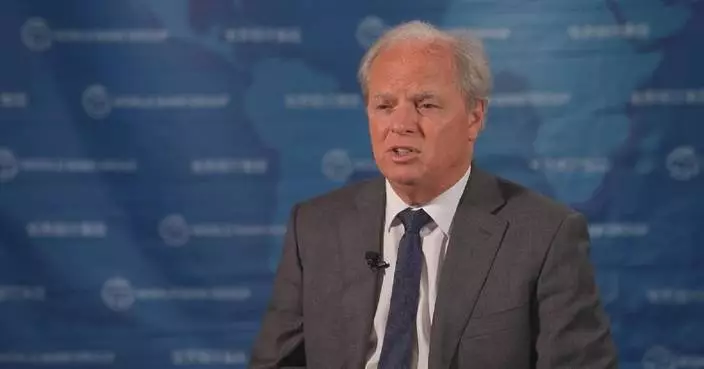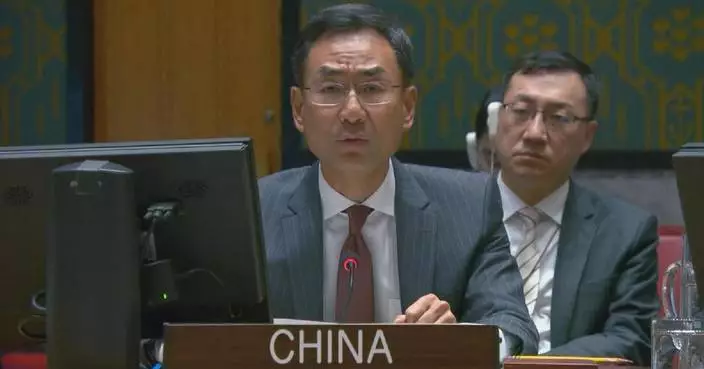The ongoing conflict between Israel and Hezbollah has left 2,574 people killed and another 12,001 injured in Lebanon, the Lebanese health authorities said on Wednesday.
A report released by Lebanese Environment Minister Nasser Yassin, also coordinator of the government's emergency committee, showed that since October 8 last year, Lebanon has suffered 10,849 attacks from Israel.
The Lebanese government has set up 1,097 shelters to house displaced people, with 922 of them already running in full capacity. Currently, 191,503 displaced individuals are staying in the officially established shelters.
Lebanon's Health Ministry confirmed one death and five injuries in Israeli raid on Al-Janah area in Beirut's southern suburbs on Wednesday.
As of 23:30 on Wednesday, Beirut's southern suburbs had been attacked 14 times that night, with six buildings in the al-Laylaki district sustaining damage.
Also on Wednesday night, Avichay Adraee, the Israeli army's Arabic-language spokesperson, issued evacuation warnings to residents living in or near dozens of buildings in Beirut's southern suburbs, advising them to move north of the Awali River, several miles away.
Adraee stated on platform X that there were Hezbollah assets in the area, but he did not provide further details or evidence.

Lebanese death toll from Israeli attacks rises to 2,574

Lebanese death toll from Israeli attacks rises to 2,574
China's development strategy reflects the importance of improving livelihoods through innovation and productivity rather than targeting raw economic growth, said James Alistair Fok, chief commercial officer at the Hong Kong Monetary Authority's Central Moneymarkets Unit (CMU).
Fok shared insights on China's economic future on the sidelines of the ongoing Swift International Banker's Operation Seminar 2024 (Sibos 2024) in Beijing.
"Frankly, I'm not that focused on the difference in not 0.2 or not 0.3 percent and GDP growth over the next quarter or next year. There's a lot of arguments out there saying that GDP is not that great a measure in any case. What we need to be focusing on is how we are improving the general level of prosperity and people's livelihoods. And in order to do that, we need to be constantly investing in research and development and innovation. Here, what we're doing is effectively trying to provide the infrastructure to connect the capital with the best opportunities and ideas to help grow productivity and improve people's lives over the long term," said Fok.
"China has done an incredible match to raise its productivity, just look around, look at the infrastructure. Walking around the streets in Beijing, you don't have the road pollution, the shift in EV in the powertrain, in cars to EVs means that you don't have the roadside pollution, you don't have the noise pollution, another thing of associated with a lot of vehicle traffic. That in itself created just a huge amount of improvement to people's general livelihoods. I think China has been very, very successful in this," the monetary official said.
On Hong Kong's investments in the Chinese mainland, Fok highlighted exciting new opportunities including offshore traded renminbi (CNH) bonds.
"Hong Kong over the last 30 years, has done incredibly well transforming into an international financial center, but it's been very narrowly based on the China equities IPO (initial public offering) business, effectively front office capital raising in international markets to invest in China. It now has the opportunity to diversify massively. The diversification is not only in terms of asset class where we're seeing actually a lot of international issuers wanting to raise money through issuing CNH bonds now, that business has been growing massively over the last couple of years because of relatively low renminbi interest rates," he said
"We're talking to Chinese custodian banks. We're listening to their business plans. We understand the demand to internationalize their networks to meet the international diversification demands for Chinese institutional savings. And that is a huge opportunity, not just for Chinese savers in the Chinese financial institutions, but also for international corporates and issues who want to tap into that pool of capital for investment," said Fok.
With the theme "Connecting the future of finance", the four-day Sibos 2024 kicked off Monday and has attracted over nearly 10,000 participants from over 150 countries and regions. The event's main exhibition has attracted 133 financial institutions and third parties, with 114 being from overseas.

HK Monetary Authority officer stresses innovation, long-term prosperity in China's economic development











